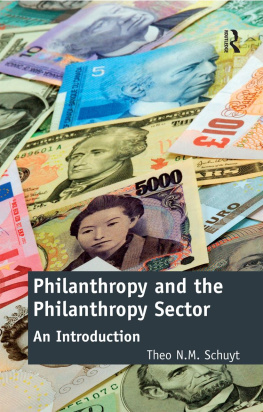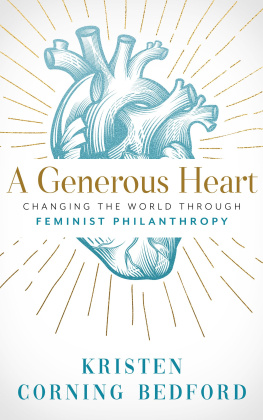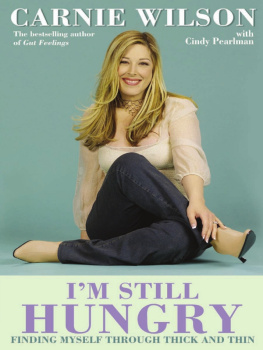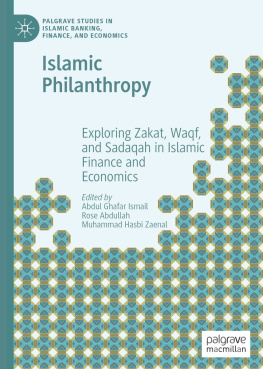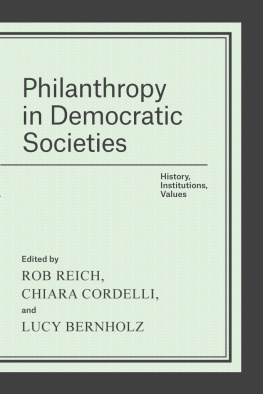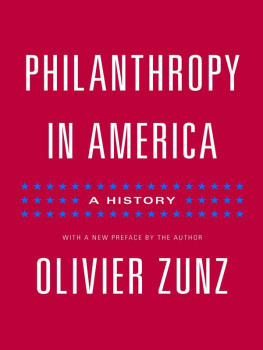HOW PHILANTHROPY IS CHANGING IN EUROPE
Christopher Carnie
First published in Great Britain in 2017 by
Policy Press University of Bristol 1-9 Old Park Hill Bristol BS2 8BB UK Tel +44 (0)117 954 5940 e-mail
North American office: Policy Press c/o The University of Chicago Press 1427 East 60th Street Chicago, IL 60637, USA t: +1 773 702 7700 f: +1 773-702-9756 e:
Policy Press 2017
British Library Cataloguing in Publication Data
A catalogue record for this book is available from the British Library.
Library of Congress Cataloging-in-Publication Data
A catalog record for this book has been requested.
ISBN 978-1-4473-3110-0 (paperback)
ISBN 978-1-4473-3112-4 (ePub)
ISBN 978-1-4473-3113-1 (Kindle)
ISBN 978-1-4473-3111-7 (ePdf)
The right of Christopher Carnie to be identified as author of this work has been asserted by him in accordance with the 1988 Copyright, Designs and Patents Act.
All rights reserved: no part of this publication may be reproduced, stored in a retrieval system, or transmitted in any form or by any means, electronic, mechanical, photocopying, recording, or otherwise without the prior permission of Policy Press.
The statements and opinions contained within this publication are solely those of the editors and contributors and not of The University of Bristol or Policy Press. The University of Bristol and Policy Press disclaim responsibility for any injury to persons or property resulting from any material published in this publication.
Policy Press works to counter discrimination on grounds of gender, race, disability, age and sexuality.
Cover design by Andrew Corbett
Front cover: image kindly supplied by Getty
Reader's Guide
This book has been optimised for PDA.
Tables may have been presented to accommodate this devices limitations.
Image presentation is limited by this device's limitations.
I have met many, many good people in my work in philanthropy, but I am only going to name three, who have shown me what good, tough, love really means; thank you Jordan, Greer and Crinan.
People start off in philanthropy, usually modestly, and then find out how much fun it is. As others have observed, you never meet an ex-philanthropist.
Theresa Lloyd, interviewed 8 December 2015, Bath, England.
Le doute n'est pas un tat bien agrable, mais l'assurance est un tat ridicule.
Doubt is not a pleasant condition, but certainty is an absurd one.
Au prince royal de prusse, le 28 novembre, in M. Palissot (ed), Oeuvres de Voltaire: Lettres Choisies du Roi de Prusse et de M. de Voltaire, Tome II. Paris: Chez Baudoiun, 1802. p 419.
Contents
Acknowledgements
It was Martine Godefroid who first introduced me to the wonders of continental European foundations and philanthropy, and I am eternally grateful to her for giving me an interest that has shaped my working life.
This is a book about people being good to other people, so it must begin with the people who have been good to me people from NGOs, universities and foundations, philanthropic people who have helped me learn about philanthropy, including the many who gave time and mind to the interviews that shaped this book. I have been a slow learner; despite the many years as a fundraiser, a prospect researcher and now a consultant and teacher I still cannot say that I really understand that deep, bright place in our hearts and minds that drives us to do good. What I have understood is all here, in this book; the views, and the errors, are mine.
I would like to thank Laura Vickers and Ruth Harrison at Policy Press for taking on a book with Europe in its title at a moment when England seems to have swung away from the continent, for their patience, their many suggestions, and their clear guidance.
ONE
Introduction
Giving, evolved
We are in Bilbao, northern Spain, at the headquarters of a mid-size Spanish NGO (non-governmental organisation). In the meeting is a board member. He is a lawyer at a leading Madrid law practice, on the point of retiring from the firm. At home he serves as a local councillor for the Partido Popular, the right-of-centre political party. He supports the NGO with time lots of it professional advice and money, and he has done so for years. I ask him about his philanthropy. He says it is his duty (mi deber) to be philanthropic; it's something necessary for him, and something private. No one has asked him to be philanthropic it is just something that he feels the need to do. Nor is his philanthropy something he talks about with others. It is not a topic for dinner-time conversation, except in the most general terms.
Here is another philanthropist from Italy, who has a family foundation. He's in his 40s, the successful scion of an Italian engineering family, who runs one branch of the family's investment empire. The investment holding company donates 1% of its profits and 1% of the founder partners salaries to a family-run foundation that supports people with disabilities. Why is he philanthropic? He recalls his childhood, the big villa in the mountains north of Milan and his mother who each August invited a group of orphans to holiday there. He inherited his mother's sense of duty. He is talking to me about his philanthropy, and I sense that he is a bit more willing to do so than is my Spanish lawyer. But philanthropy is still a largely private affair.
These are examples of how philanthropy largely is across Europe. The Spanish lawyer and the Italian entrepreneur fit the pattern of many, perhaps most, of Europe's philanthropists. The private duty to be philanthropic is embedded in the minds of millions of people across Europe, an inherited moral standard that is an accepted tax on wealth. These morals are not necessarily religious, although religion does provide part of the explanation of this suite of beliefs about philanthropy, including the sense that when one has money one has a duty to do some good with it. They are ancient we can see examples of philanthropy in Europe right back to the beginnings of history but they are evolving. Look more closely at the Spanish lawyer and you will find that he is on the board of a network of foundations in Spain philanthropists coming together to try to improve their ways of giving. The Italian entrepreneur is in fact a philanthropic investor, using a combination of social enterprises and non-profits to target specific social changes he seeks to encourage.
Philanthropy is evolving right now, in Europe. William Beveridge, a renowned early 20th century welfare reformer in the UK, said in a 1942 report (Penn, 2011) that philanthropy has shown its strength of being able perpetually to take new forms, and Europe today feels like a crucible of ideas, products, projects, forms and fiscal inventions for philanthropy. The research laboratory for these ideas is the world of high-value philanthropy, where people have the money, the experience and the influence to test out the sometimes weird and the often wonderful.
The objective of this book is to capture and illustrate the evolution in high-value philanthropy in Europe and to provide a practical map for people working in the field.
Definitions and frontiers
Philanthropy
This book will use the same definition as Pamala Wiepking in her seminal 2008 work on the sociology of giving: The literal translation of the Greek word philanthropy is the love of mankind,



